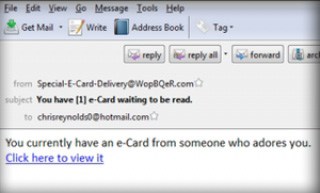How the scam works:
During the holiday season, we send and receive messages with all kinds of wishes– so you are not surprised when, one day, you receive an electronic card in your e-mail or your Facebook/ Twitter/ LinkedIn inboxes.
Scam Detectors Most Trusted Websites in Online Security
- Guard.io (100): Surf the web safely. Clean up your browser, remove maliscious extensions and check for privacy violations.
- Incogni.com (100): Delete your personal data from the internet and protect against scams and identity theft.
- ExpressVPN (100) Stay secure and anonymous online - Best VPN Out There
You get the notification and are invited to open the card by clicking on a link. The name of the e-card company that scammers use to get your attention could be a famous one (eg. Hallmark) but the link you are directed to click on contains a virus or key logger – software that records what keys you press and then access your personal files.
How to avoid:
Any reputable e-card company will tell you in the notification message who the person sending you the card. If the message you receive is just: “You’ve received a card” or "You have a secret admirer", delete it right away – especially if asks you to click on a links. Last but not least, look for the domain name used to send this message and also at the "Sent to" e-mail address. If it's not yours, ignore the e-mail.
Make your friends and family aware of this scam by sharing it, using the buttons above.
Related Articles and Pages:
Verify a website below
Are you just about to make a purchase online? See if the website is legit with our validator:
vldtr®


TOP 4 MUST-WATCH FRAUD PREVENTION VIDEOS
1. Top 5 Amazon Scams in 2024 2. Top 5 PayPal Scams in 2024 3. How To Spot a Scam Email in 2024
- Latest Posts by Selma Hrynchuk
-
Compromised Credit Card Scam
- -
Fake Google Chrome Update
- -
Facebook Privacy Notice Hoax
- All Posts














A lot of scams work like this. You might get what appears to be a letter from the IRS, an insurance company, a delivery service, and so on. The scammer claims they have an important document for you to review, and you need to open an attachment to view it. Don’t do it. It works exactly the same way the phony e-card does. The general rule is, don’t open attachments unless you know exactly what they are.